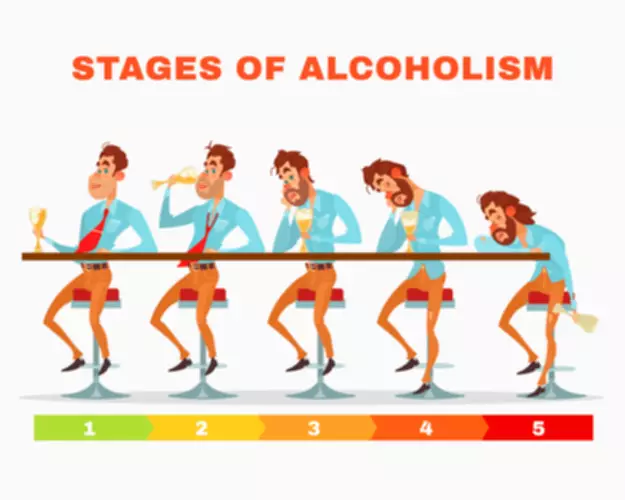
Understanding the distinction between alcohol use, abuse, and alcoholism is crucial in seeking appropriate help and support. It allows individuals to recognize when their alcohol consumption becomes problematic and seek the necessary treatment and resources to address their specific needs. Genetic and biological factors play a significant role in the predisposition to alcoholism and alcohol abuse.
Understanding Alcoholism and the Signs of Severe Drinking Problems

According to the DSM-IV, an alcohol use disorder is clinically defined as, “a problematic pattern of alcohol use leading to clinically significant impairment or distress”. The definition continues to outline examples of AUD to determine severity of the disorder. The term “Alcoholic” is often used in regards to the Alcoholics Anonymous program. Regardless of the path you choose for treatment, the VOASW is here to support you. If you’re struggling with alcohol use and need someone to talk to, contact us today. To avoid these tendencies, try to drink alcohol in moderation—or not at all.
Physical Signs of Alcoholism
Vanguard Behavioral Health provides comprehensive services that cater to those in need of support on the path to sobriety. Alcohol abuse and alcoholism represent two points on the spectrum of alcohol use disorders. In contrast, alcoholism, or alcohol dependence, involves the physical need for alcohol to function, coupled with a loss of control over consumption and a preoccupation with drinking. Alcohol use disorder https://ecosoberhouse.com/ (AUD) encompasses alcohol abuse, alcoholism and alcohol dependence. It’s a brain disorder that can be measured on a scale of mild, moderate or severe depending on the level and frequency of consumption and adverse effects. According to the National Institute on Alcohol Abuse and Alcoholism, the risk for developing AUD increases when you engage in behaviors like binge drinking and heavy alcohol use.
What Is Moderate Drinking?
- Alcohol abuse can also affect one’s social life, leading to isolation, withdrawal from social activities, and difficulty maintaining healthy connections.
- She has worked in inpatient settings as well as provided community nursing as a Nurse Practitioner.
- Severity is based on the number of criteria a person meets based on their symptoms—mild (2–3 criteria), moderate (4–5 criteria), or severe (6 or more criteria).
- With a professional’s help, you can develop a healthier future that doesn’t involve drinking excessively or at all.
The disorder can also be broken down further into mild, moderate, and severe subtypes. Many symptoms can be managed at home, but moderate to severe withdrawal should be supervised by a healthcare professional and may require inpatient treatment. Alcoholism is a term used to describe an individual who suffers from severe alcohol dependence. While the CDC reports that 90% of people who abuse alcohol don’t fit the criteria for alcoholism, it’s still a serious concern in the United States. Ten percent of Americans who drink excessively are classified as alcoholics, according to Reuters.
- Severe symptoms of alcoholism such as seizures and delirium tremens (DTs) can cause death.
- It’s clear that while there is no one-size-fits-all solution, a combination of evidence-based practices offers the best chance for successful recovery.
- Alcohol use disorder includes a level of drinking that’s sometimes called alcoholism.
- The presence of a mental health disorder, especially mood and anxiety disorders, can significantly contribute to the development of alcohol use disorder.
- Behavioral changes, such as increased secrecy, mood swings, and neglecting responsibilities, can also indicate alcohol abuse.
It’s important to consult with healthcare professionals to determine the most suitable treatment options based on your specific needs and circumstances. When it comes to addressing alcohol-related issues, recognizing the need for help is a crucial first step. Whether someone is struggling with alcoholism or alcohol abuse, seeking appropriate help and treatment is essential for overcoming these challenges. In this section, what is the difference between alcohol abuse and alcoholism we will explore the different options available for individuals in need of support. Recovery and rehabilitation offer hope and the potential for reversing some of the damage caused by alcohol, but early intervention is key to preventing the most severe health consequences. Research underscores the importance of comprehensive treatment approaches to support individuals in overcoming alcoholism and restoring their health.


According to a study published in the journal Preventing Chronic Disease, 90% of people who abuse alcohol are not alcohol dependent. However, certain food groups also have benefits when it comes to helping with the discomfort of withdrawal symptoms and detoxification. While you’ll often hear the two terms used to describe the same issue, they’re actually distinct diagnoses. To help clarify the difference between the two, let’s take a closer look at alcoholism vs alcohol abuse. Informed by her personal journey to recovery and support of loved ones in sobriety, Jessica’s empathetic and authentic approach resonates deeply with the Addiction Help community.

- Both conditions can lead to an increased risk of co-occurring mental health disorders, necessitating treatment that addresses both substance use and mental health simultaneously.
- Detoxification is a safe way to eliminate alcohol from the body, only when it’s medically supervised.
- Those with more control or a structured home environment are also potential candidates.
- Long-term alcohol use can lead to changes in the brain that exacerbate cravings and loss of control over drinking, requiring greater quantities of alcohol to achieve its effects.
Stay connected to us on social media
Alcohol Abuse Symptoms
